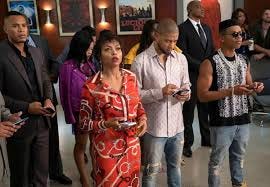Mummy’s Boy : The Complex Bond Between Black Men, Their Mothers, and Romantic Relationships
Who comes first in a man’s life—his mother or his wife?
Who sits in the front seat?
The age-old question of whether a man should prioritise his mother or wife often stirs up debate. The answer should seem straightforward: his wife. But in reality, there’s often a surprising twist. Many men, particularly Black men, find themselves prioritising their mothers to an extent that strains their romantic relationships. But why is there such a deep attachment between Black men and their mothers and how does this attachment shape their romantic lives?
I’ve seen first-hand how the relationship between a Black mother and her son crosses boundaries that cause frustration in their love lives. Now there is nothing wrong with loving your Mum. Absolutely nothing. But when that love starts to blur into a dependency that bleeds into your romantic life, the issues begin. We all know the joke about a man being “Mummy’s Boy”. Often used in a negative light, the term is used to describe a man who is overly attached or dependent or some may say obsessed with his mother. The “Mummy's Boy” concept goes beyond just a joke or stereotype—it sheds light on how a man’s relationship with his mother can deeply influence his romantic life even to the point of allowing his mother to dictate who he dates. I mean a mans first love should be his mother right ?
Subconsciously, many men are drawn to partners who either resemble or contrast their mothers. If a man’s mother was overprotective, he might seek a partner who babies him. On the other hand, if his mother was absent or emotionally distant, he may crave excessive attention from his romantic partner, attempting to fill the void his mother left. While some may find comfort in their partner’s close relationship with their mother, for many women, this attachment becomes frustrating.
The question arises: how can one respect and love their mother while creating healthy boundaries for a mature, romantic relationship?
The Coddling Phenomenon
The relationship between a Black mother and her son is a dynamic uniquely shaped by external forces like racism and societal expectations. Black mothers, often bearing the burden of protecting their children in a racially biased world, can overcompensate with extreme care and affection. They face added pressure to protect their sons from the harsh realities of the world, especially living in a society that disproportionately criminalises young Black men. Black mothers place heavy emotional burdens and demands on their sons due to these fears creating a dynamic where Black boys become emotionally dependent on their mothers.
In single parent households the mother becomes the primary source of emotional support and guidance. It amplifies the mother's emotional burden, as she feels the weight of providing both nurturing and disciplinary support. In these situations, I’ve seen how the bond becomes even more intense. These hypervigilant parenting behaviours exhibited by parents perpetuate the phenomenon of “coddling” Black boys and “raising” Black girls. This “coddling” of Black boys provides them with extra emotional support and protection that can hinder their development as independent individuals, depending on their level of attachment and stifle emotional maturity and autonomy development.
The relationship between Black mothers and their sons can reflect deeply ingrained values in Black communities. There is often a strong emphasis on respect for elders, particularly mothers, who are seen as the backbone of the family. I can speak to the experience of mothers often being elevated to a position of ultimate authority and respect. This respect, while powerful and necessary, can sometimes spill over into a form of idealisation, where sons alike view their mothers as perfect and invulnerable. This idealisation fosters over-reliance, preventing sons from seeing their mothers as imperfect humans.
Perfect Son Syndrome
Coddling then creates the same cycle, where many mothers unknowingly play into the “Mummy’s Boy” dynamic. Mothers may unknowingly reinforce the idea that their sons are perfect and incapable of making mistakes or facing consequences, even when their behaviour warrants correction. You’ll hear stories of mothers who, even when their sons make mistakes or treat others poorly, turn a blind eye, offering excuses or even shifting the blame elsewhere. It borders damaging when you refuse to see the bad in your children or recognise they are too human and can make mistakes. Your child isn’t perfect simply because you birthed them. I've seen firsthand how Caribbean mothers specifically can sometimes baby their grown adult children, regardless of their behaviour. Their daughters however often draw the short straw of their mother’s anger or frustration, expected to take on more responsibility and be more self-sufficient. This can create an imbalance, where the sons are treated with a level of indulgence and protection, while daughters are held to higher standards, which can strain relationships and development. This idealisation of the son as flawless and invincible can further contribute to the cycle of dependence, where the mother’s devotion, rooted in her deep maternal love, hinders the son's emotional development and perpetuates a cycle of dependency that’s hard to break.
With this debate of who should sit in the front seat, you’ll see mothers alike who expect to be sitting at the front because they believe they are the most important women in their sons’ lives. In these situations, the mother’s protective nature often blurs the line between nurturing and enabling, allowing their sons to avoid responsibility for their actions. This leads to an emotional dependency that stifles growth, as the son relies on his mother for validation, guidance, and even forgiveness, regardless of his behaviour. By constantly shielding them, mothers may unintentionally delay their sons' ability to mature into independent adults, unable to navigate the world without their mother’s constant support and approval.
Evolving Beyond the 'Mummy's Boy' Dynamic
In my research I naturally found myself doing a deep dive on Reddit. Some shared stories of frustration, claiming they felt as though they were competing for their partner’s attention against his mother. One Redditor even accused her partner of having an Oedipal Complex—Freud’s theory that a son has unconscious romantic feelings for his mother. Many expressed frustrations with feeling like their partner’s mother didn’t accept them. On the other hand, some women didn’t mind the close bond, believing it was a positive sign of family values and connection. Being a “Mummy’s Boy” it seems can have its pros and cons. On one hand, the close bond with a mother can lead to emotional intelligence, strong communication skills, and a nurturing, supportive nature. Many women value men who have a strong relationship with their mothers because it reflects shared values and emotional intimacy. On the flip side, the downside is that an overattachment to a mother can hinder a man’s ability to form healthy, independent relationships. Boundary issues, jealousy, and dependency often emerge, complicating romantic partnerships.
In a lot of cases, a man's attachment to his mother becomes a barrier to forming mature romantic relationships as he may subconsciously expect his partner to behave like his mother. Whether it's seeking constant reassurance or needing their partner to play the emotional caretaker role, this dynamic can be frustrating for women. I have been known to take over a man's life and sometimes make it my own. I realise how deeply ingrained the caretaker role has been in my life. Growing up I often found myself taking on the emotional labour of not just my family, but my partners too. Falling into this trap, I’d get so caught up in nurturing and supporting others that I would forget to prioritise myself and put his needs before mine. In my romantic relationships, I often took over in ways that felt natural but left me emotionally drained.
I felt like their overprotective mother.
The dynamics of the "Mummy's Boy" can be complex and deeply ingrained, especially when a man’s attachment to his mother moves beyond affection and support into a dependency that creates tension in his romantic life. While it's natural for a mother to want to protect and care for her child, when that protection turns into emotional over-reliance, it can start interfering with a man’s ability to thrive in adult relationships. The cycle of dependency often stops men from learning how to stand on their own, solve problems independently, and take responsibility for their actions. It’s not about rejecting the love or respect for a mother, but recognising when that bond crosses into a space that prevents growth.
As Toni Morrison poignantly puts it, "Mama-spoiled Black man, will you mature with me?" It’s time to reflect on the relationships that shaped you and consider whether you’re ready to evolve. Moving beyond attachment doesn't mean abandoning love—it means embracing emotional maturity, setting healthy boundaries, and forming relationships built on mutual respect. It's about valuing your partner as an equal, not just as a caregiver.
So, I ask: Are you still allowing emotional dependency on your mother to dictate your choices? Who sits in your front seat ?






A really good read, love it 👏🏿
" I have been known to take over a man's life and sometimes make it my own. I realise how deeply ingrained the caretaker role has been in my life. Growing up I often found myself taking on the emotional labour of not just my family, but my partners too. Falling into this trap, I’d get so caught up in nurturing and supporting others that I would forget to prioritise myself and put his needs before mine. In my romantic relationships, I often took over in ways that felt natural but left me emotionally drained."
I appreciate the above being shared. I realize that my experience is necessarily limited. Having said that, I wonder if we sometimes give to others what we wish could be given to us? Maybe given back to us in a different kind of a way but still in a reciprocal manner. Selfless love that's too one sided can lead to resentment, bitterness, disappointment, and discouragement.
Is love supposed to be totally selfless? How do we ensure that we receive what we need from others? Is negotiation and bargaining necessary in relationships involving two adults? Should either partner treat the other as needy or as a young child? Does each person in a relationship have something to give and is it okay to expect reciprocity?